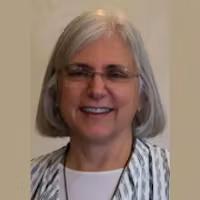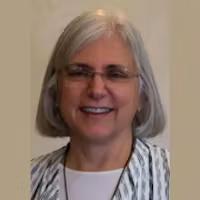The Master of Science in Data Science (MS-DS) from the University of Colorado Boulder is a comprehensive online program designed for aspiring data scientists. This flexible program combines theoretical foundations with practical applications, covering essential topics in data science, statistics, and programming. With performance-based admission and pay-as-you-go tuition, students can complete the 30-credit program at their own pace while gaining expertise in data analysis, machine learning, and statistical methods.
Instructors:
English
Course Start Date:
Spring, 2026
Application Deadline:
20th Feb, 2026
Duration:
24 Months
₹ 14,20,537
Overview
The MS in Data Science program at CU Boulder offers a comprehensive education in data science fundamentals and advanced applications. This fully online program features 30 credit hours of coursework, combining theoretical foundations with hands-on projects. Students learn from distinguished faculty at a Tier 1 Research institution, including Nobel Laureates and MacArthur Genius Grant winners.
Why MSc (Master of Science)?
The program stands out for its performance-based admission process, flexible completion timeline, and comprehensive curriculum. Being part of CU Boulder's prestigious academic community provides access to cutting-edge research and industry connections. The pay-as-you-go model and online format make advanced education accessible to working professionals.
What does this course have to offer?
Key Highlights
Performance-based admission
Fully accredited by HLC
Flexible pay-as-you-go tuition
Weekly live office hours
Robust alumni network
Career services support
30 credit curriculum
Who is this programme for?
Aspiring data scientists
Working professionals seeking career advancement
Individuals interested in data analysis and machine learning
Professionals transitioning to data science careers
Students from diverse academic backgrounds
Minimum Eligibility
Bachelor's degree in Computer Science or related field
Proficiency in object-oriented programming
Strong academic background
GRE scores (optional)
English language proficiency
Who is the programme for?
The admission process is performance-based, requiring successful completion of three initial courses with a minimum 3.0 GPA. The program consists of 30 credit hours, including core courses, electives, and specialized tracks. Students can complete the program in 18-24 months, with courses delivered through the Coursera platform.
Selection process
How to apply?
Curriculum
The curriculum combines computer science, statistics, and data science fundamentals. Core courses cover essential topics like programming, algorithms, and statistical methods. Students can choose electives to specialize in areas such as machine learning, big data analytics, or data visualization.
There are 4 semesters in this course
The MS-DS program is structured across 30 one-credit courses, combining theoretical foundations with practical applications. The curriculum includes computer science fundamentals, statistical methods, machine learning algorithms, and data visualization techniques. Each course incorporates hands-on projects and real-world applications to ensure practical skill development.
Pathways (6 credits)
Vital skills for Data Scientists (4 credits)
Core courses (11 credits)
Elective courses
Programme Length
The program offers flexible completion options, ranging from 18 to 24 months. Students can take courses at their own pace, with approximately 4-6 hours of study required per credit hour per week. The program must be completed within eight years.
Whom you will learn from?
Learn from top industry experts who bring real-world experience and deep knowledge to every lesson. The instructors are dedicated to help you achieve your goals with practical insights and hands-on guidance.
Instructors
Dedicated Educator and Leader in Applied Mathematics
Dr. Dougherty has held the position of J.R. Woodhull/Logicon Teaching Professor of Applied Mathematics since July 2012. In addition to her teaching responsibilities, she serves as the Associate Chair for Applied Mathematics and is a faculty advisor for applied math majors and minors, as well as statistics minors. Dr. Dougherty also represents the CU campus for the Goldwater Scholarship and advises students participating in the international Mathematics Contest in Modeling.
Distinguished Leader in Computer Science and Education
Bobby Schnabel is a Professor and External Chair of Computer Science at the University of Colorado Boulder, where he also serves as the Faculty Director for Entrepreneurship in the College of Engineering and Applied Science. He previously held the role of CEO of the Association for Computing Machinery (ACM) from 2015 to 2017 and was Dean of the School of Informatics and Computing at Indiana University from 2007 to 2015. Schnabel was part of the Computer Science faculty at CU Boulder from 1977 to 2007, during which time he served as CS department chair from 1990 to 1995, associate dean for academic affairs from 1995 to 1997, founding director of the ATLAS Institute from 1997 to 2007, and vice provost for academic and campus computing and Chief Information Officer from 1998 to 2007. He is a co-founder of the National Center for Women & Information Technology (NCWIT) and remains active on its executive team. Additionally, he co-founded the AAAI/ACM Conference on AI, Ethics and Society and chairs the ACM task force on ethics in computing education.
Tuition Fee
The total program cost is $15,750 USD ($525 per credit). Students pay per course on a flexible basis, allowing them to manage expenses throughout their studies. The pay-as-you-go model provides financial flexibility for working professionals.
Fee Structure
Payment options
Financial Aid
Learning Experience
Students experience a combination of asynchronous learning through recorded lectures and interactive content, along with synchronous elements including weekly live office hours. The program emphasizes hands-on projects and peer collaboration through online forums and group work.
University Experience
The university provides comprehensive online resources including digital library access, career services, and alumni networking opportunities. Students can participate in virtual office hours and online study groups, fostering a collaborative learning environment.
Testimonials
Testimonials and success stories are a testament to the quality of this program and its impact on your career and learning journey. Be the first to help others make an informed decision by sharing your review of the course.
Loading alumni...
About the University
The University of Colorado Boulder (CU Boulder) is a public research university located in Boulder, Colorado. Established in 1876, it is the flagship institution of the University of Colorado system and serves approximately 36,680 students, including around 27,665 undergraduates and 5,581 graduate students. CU Boulder offers over 150 academic programs across nine colleges and schools, with notable strengths in engineering, business, environmental sciences, and the arts.The university is classified as an R1 institution, indicating very high research activity, and has garnered over $634 million in research funding annually. CU Boulder is known for its commitment to sustainability and innovation, regularly ranking among the top universities in the United States for its environmental initiatives.
#108
QS World University Ranking
36,680
Total Enrollment
84%
Acceptance Rate
Affiliation & Recognition
-1726816865623.svg)
Association of American Universities
Faculties
These are the expert instructors who will be teaching you throughout the course. With a wealth of knowledge and real-world experience, they're here to guide, inspire, and support you every step of the way. Get to know the people who will help you reach your learning goals and make the most of your journey.
Instructors
Versatile Expert in Education and Corporate Development
Al possesses extensive and diverse experience in both educational and corporate sectors, demonstrating success as a presenter, thought leader, author, innovator, entrepreneur, and administrator at both K-12 and higher education levels. His work spans collaborations with K-12 school districts, higher education institutions, non-profits, and corporate education arms, focusing on culture transformation and visionary leadership. Al is skilled in curriculum and program analysis, adaptation, creation, and development.
Dynamic Geoscientist and Educator
Dr. Alan Lester is a distinguished figure with a multifaceted background that spans various fields. A celebrated rock climber in the 1990s, he achieved first ascents from the Colorado mountains to Yosemite National Park, which naturally led him to pursue geology at the University of Oregon, culminating in a Ph.D. from the University of Colorado, Boulder. His research focuses on utilizing advanced technologies such as paleomagnetism, stable isotopes, trace elements, and radiometric dating to explore the origin and evolution of the Rocky Mountains. Since the mid-1990s, Alan has held multiple roles at CU-Boulder, including Senior Instructor and Research Associate, earning numerous awards for his excellence in undergraduate education. Recently, he has concentrated on geoscience education with an emphasis on the history of science. Additionally, Alan has been a part-time commercial airline pilot for over a decade, providing a unique aerial perspective that enriches his teaching. This diverse experience contributes to his engaging storytelling ability, making his video lectures a vital component of his courses.
Career services
The University of Colorado Boulder offers comprehensive career services designed to support students in their professional development. These services include personalized career counseling, workshops on resume writing and interview preparation, as well as access to job fairs featuring top employers across various sectors. CU Boulder emphasizes experiential learning through internships that allow students to gain practical experience while studying. The Career Services office maintains partnerships with numerous organizations to facilitate internship placements aligned with students' career goals. Additionally, online resources are available that include job listings and career advice articles.
91%
Placement Rate
$50,000
Average Salary After Graduation
Top Recruiters





Course Start Date:
Spring, 2026
Application Deadline:
20th Feb, 2026
Duration:
24 Months
₹ 14,20,537
Frequently asked questions
Below are some of the most commonly asked questions about this course. We aim to provide clear and concise answers to help you better understand the course content, structure, and any other relevant information. If you have any additional questions or if your question is not listed here, please don't hesitate to reach out to our support team for further assistance.







